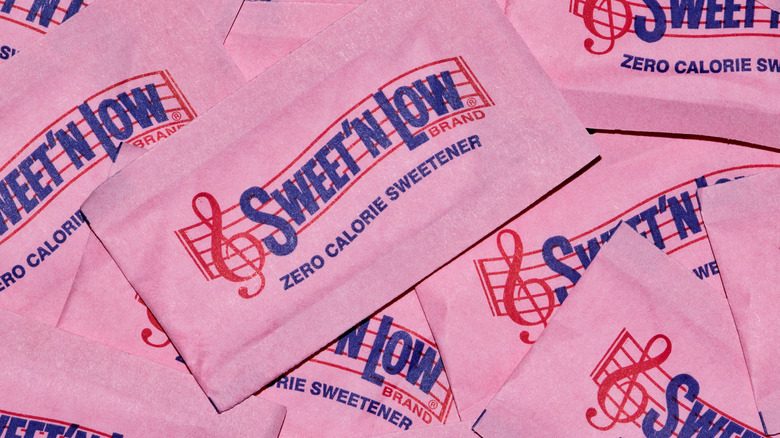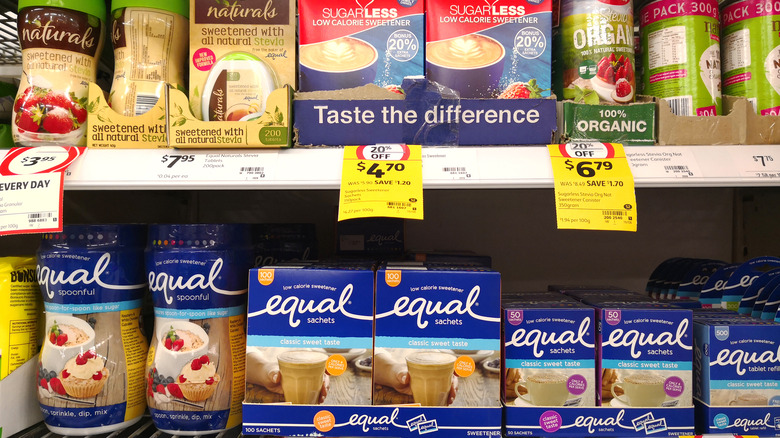New Study Reveals A Link Between Artificial Sweeteners And Cancer Risk
If you try to eat a diet low in processed sugar, chances are you've sampled some of the alternative sweeteners available today. Many of us remember those bright pink Sweet 'N Low packets from our youths, but over the past few decades the artificial sweetener market has grown way past saccharin to include a variety of compounds including aspartame, stevia, and sucralose (via Family Doctor). Artificial sweeteners don't contain many calories nor do they contribute to tooth decay, making them a popular choice for an increasing number of Americans. According to Insider, over the past decade, sales of products sweetened with sugar have fallen, while more consumers have gravitated to artificially sweetened products.
But sugar substitutes have been plagued by rumors of being carcinogenic since the early 1970s, not long after artificial sweetener pioneer Sweet 'N Low debuted on the market (via Cancer.gov). And now, compelling new evidence from a French-based study shows a link between the consumption of sugar substitutes and an increased risk of cancer.
Aspartame and acesulfame-K pose the greatest risks
Last week, the journal PLOS Medicine published a study that demonstrates a link between the consumption of artificial sweeteners and an increased risk of developing cancer. According to Insider, researchers from Sorbonne Paris North University and French Network for Nutrition and Cancer Research reviewed long-term data from 102,865 French adult participants. Analyzing data that examined the age, weight, diet, and lifestyle, among other factors, of the participants over an average eight-year period, the researchers determined that study participants who consumed the highest levels of sugar substitutes had a 13 percent higher risk of developing cancer compared with participants who didn't consume artificial sweeteners.
"In line with official recommendations from several public health agencies, these findings do not support the use of artificial sweeteners as safe alternatives for sugar in foods or beverages," study coauthors Charlotte Debras and Mathilde Touvier, of Sorbonne Paris North University, told Insider. The study concluded that aspartame and acesulfame-K were particularly dangerous, correlating with breast and obesity-related cancers.
Even if you stay away from diet sodas, your intake of artificial sweeteners might be higher than you think. According to Women's Health, sugar substitutes can often be tucked away in packaged products you might not expect, ranging from ketchup to granola to Greek yogurt. Time to bust out your reading glasses and scrutinize those ingredient lists.

